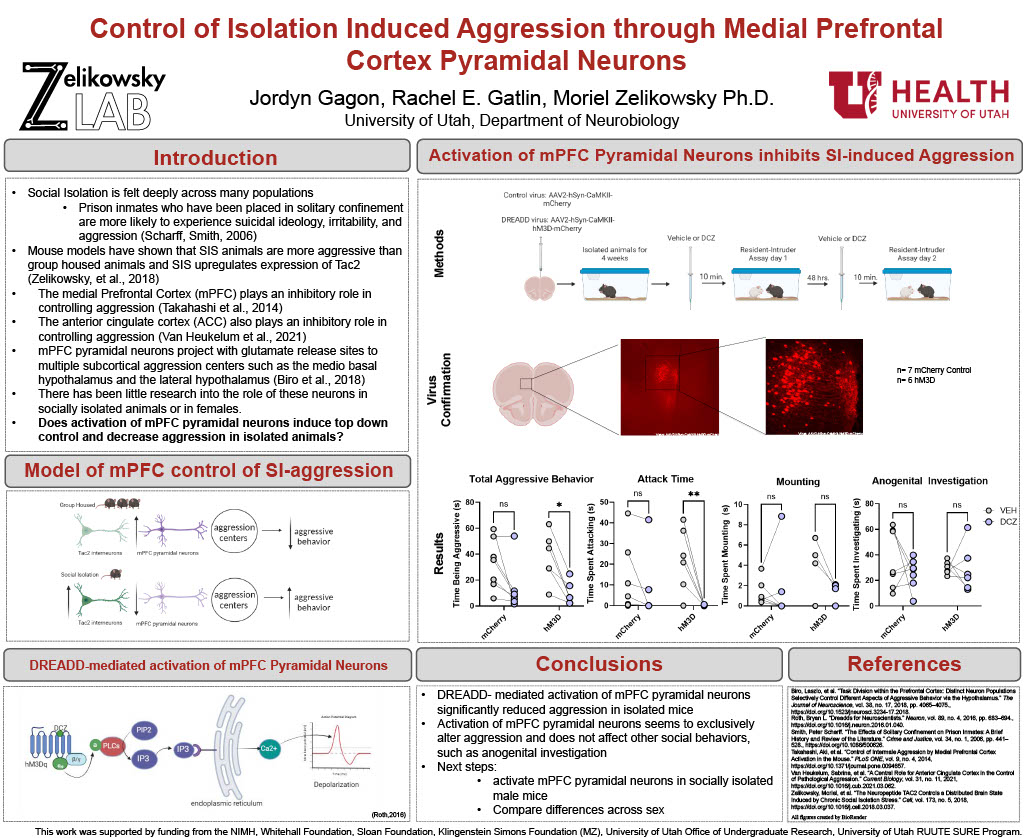Presenter Name: Jordyn Gagon
Description
The effects of social isolation are felt deeply throughout many populations. One example is prison inmates who have been placed in solitary confinement are more likely to experience suicidal ideology, irritability, and aggression. Furthermore, mouse models have shown social isolation in mice increases aggression in comparison to group-housed animals. Previous work has established that mPFC pyramidal neurons project to multiple subcortical aggression centers, and that activation of such neurons in mPFC reduces aggression. Despite this, no work has focused on how this population of neurons may regulate social isolation-induced aggression nor have these neurons been studied in females. Here, we expand on previous work by examining whether activation of mPFC pyramidal neurons reduces aggression in socially isolated female mice. To this end, we infused a virus encoding the excitatory DREADD, hM3D, fused to mCherry, under control of the CaMKII promoter into the mPFC of female C57Bl6/N mice (N=8). A virus expressing mCherry without the hM3D DREADD under the control of the CaMKII promoter was used as a control (N=9). Following surgery, all mice were socially isolated for 4 weeks to induce aggression. After isolation, a within subject's design was used to examine the impact of DREADD-mediated activation on aggression. Each animal was tested twice on the resident intruder assay- once in which the DREADD ligand, Descholorclozapine (DCZ) administered via i.p, injection and once with vehicle- 48 hours apart. The viral conditions were counterbalanced such that half the animals in each viral condition received DCZ on the first test day and half received an injection of the vehicle. Activation of mPFC pyramidal neurons significantly decreased aggression in isolated mice (Repeated Measures ANOVA, p<.05). These results support the hypothesis that the mPFC plays an inhibitory role in aggressive behavior, and mPFC pyramidal neurons are essential to this inhibitory control.
University / Institution: University of Utah
Type: Poster
Format: In Person
Presentation #D11
SESSION D (3:30-5:00PM)
Area of Research: Health & Medicine
Email: u1224129@utah.edu
Faculty Mentor: Moriel Zelikowsky

